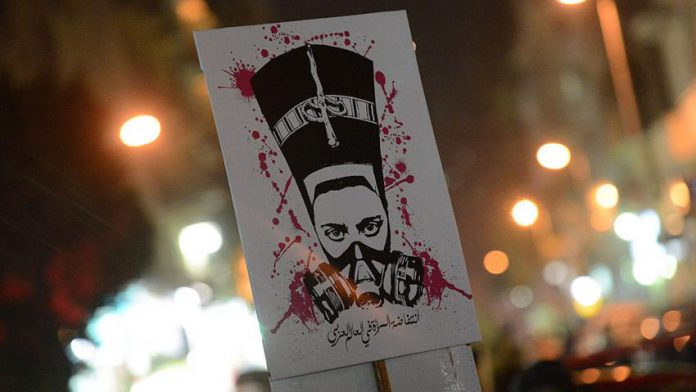•Family blamed her for leaked intimate video
A 23-year-old Egyptian woman in Giza has reportedly committed suicide after her family blamed her for a private video that was leaked on social media without her consent.
According to local reports on Wednesday, the unidentified woman from the city of Al-Ayyat set herself on fire on Tuesday, after succumbing to her injuries at the city’s central hospital.
Her lover, a 25-year-old factory worker, allegedly confessed to secretly filming their intimate moments and posting the footage on social media without her permission.
The Al-Ayyat public prosecution office authorised the burial of the body after an autopsy was carried out to confirm the cause of death and her family was called upon for interrogation.
According to Al-Masry Al-Youm, a police report received by the prosecution quoted the girl’s family saying they were shocked their daughter had taken her life even though they had “blamed her for her act”.
In 2018, Egyptian President Abdel Fattah Al-Sisi approved a cybercrimes law which punishes the posting of photos and videos of others without their consent.
According to the law, posting content that “violates the family principles and values upheld by Egyptian society” may be punished by a minimum of six-months’ imprisonment, and/or a fine of EGP50,000–100,000 (Up to $6,364).
However, the law is rarely applied and those who leak private photos and videos of women without their consent are rarely prosecuted.
Moreover, premarital sex is considered a taboo in conservative Egypt, with blame often directed at women, who are subjected to violence and even ‘honour killings’ for exercising sexual freedoms.
In July, a #MeToo movement took over Egyptian social media, with many women using aliases to recall experiences of harassment – extremely prevelant in Egyptian society – as well as blackmail at the hands of men.
Hundreds of women and activists condemned the country’s lack of punitive measures against those commiting sex and gender-based crimes.
It is not uncommon to see Egyptian men leaving cruel comments for the victim on the social media, accusing her of “disrespecting Egyptian societal values” and blaming her for the leaked videos.
It was gathered that Amnesty International has documented at least two instances where courts have even used private photos as “evidence” to prosecute women on charges of “indecency” and “violating family principles and values”.











